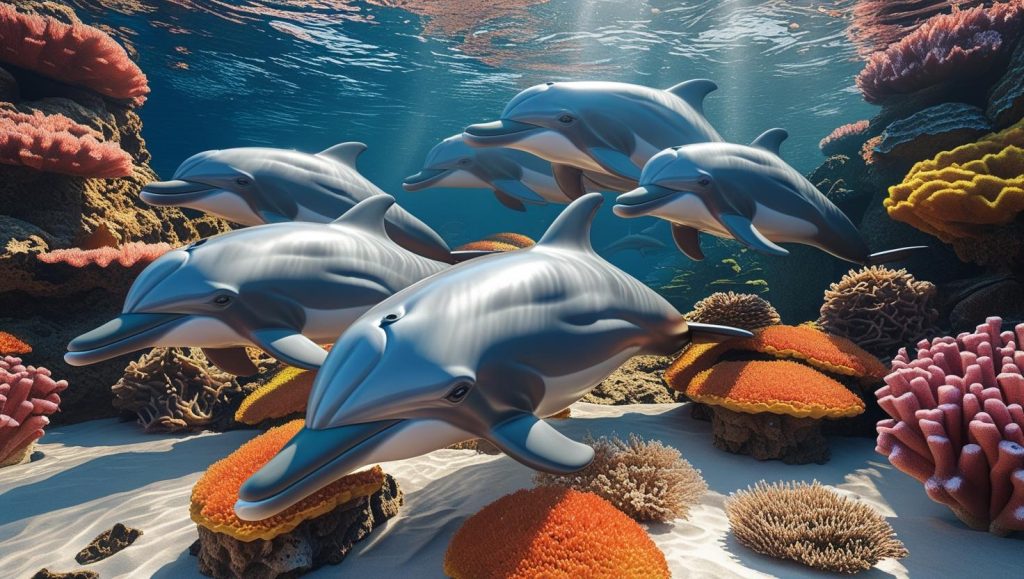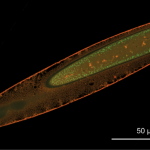What if dolphins knew how to heal themselves with coral reef medicine? According to a groundbreaking study published in iScience, Indo-Pacific bottlenose dolphins (Tursiops aduncus) have been observed deliberately rubbing their bodies against specific corals and sponges that release bioactive compounds—suggesting self-medication behavior in the wild.
This behavior not only showcases dolphin intelligence but also adds dolphins to the growing list of wild animals practicing zoopharmacognosy—the use of natural substances to self-treat ailments.
Coral Rubbing: More Than a Spa Day
Researchers documented repeated and targeted rubbing by dolphins on selected reef organisms, including:
- Gorgonian corals
- Leather corals
- Marine sponges
The dolphins made purposeful contact using specific body parts—such as the head, flippers, and genital region—hinting that this wasn’t casual scratching but a targeted health-related behavior.
Scientific Evidence of Bioactive Compounds
To investigate further, the researchers extracted mucus and compounds from the rubbed corals and sponges. Lab tests showed that these species produced antimicrobial, cytotoxic, and hormonal-modulating substances, including:
- Antioxidants
- Estrogen-like molecules
- Compounds with antibacterial and antifungal effects
These chemicals could help dolphins:
- Treat skin infections
- Regulate microbiome balance
- Reduce inflammation and irritation
Why It Matters: Zoopharmacognosy in Marine Mammals
Zoopharmacognosy has been well-documented in land animals like:
- Chimpanzees swallowing rough leaves to purge parasites
- Birds lining nests with aromatic herbs
- Elephants and bears seeking out medicinal plants
But this study provides the first robust evidence of marine zoopharmacognosy—and it’s practiced by some of the ocean’s smartest mammals.
It also emphasizes that coral reefs may be more than just biodiversity hotspots—they could be crucial to marine animal health.
Conservation Implications
As coral reefs face threats from climate change, pollution, and overfishing, this discovery raises new conservation priorities:
- Protecting reef biodiversity could also protect the behavioral medicine of dolphins
- Disrupting these habitats may limit dolphins’ ability to self-heal, affecting population health and longevity
This intersection of marine biology and animal behavior underscores why conserving ecosystems is tied directly to animal welfare.
Conclusion
The study by Morlock et al. (2022) opens an exciting new chapter in marine science: dolphins don’t just play and hunt in coral reefs—they may also seek healing and relief from them.
This behavior highlights an evolutionary intelligence that extends beyond survival—into the realm of self-care, health maintenance, and possibly even social learning.
As we continue uncovering such secrets from the sea, one thing becomes clear: nature is a far more sophisticated pharmacy than we ever imagined.
Reference
Morlock, G. E., Ziltener, A., Geyer, S., Tersteegen, J., Mehl, A., Schreiner, T., … & Brümmer, F. (2022). Evidence that Indo-Pacific bottlenose dolphins self-medicate with invertebrates in coral reefs. IScience, 25(6). DOI: 10.1016/j.isci.2022.104271







